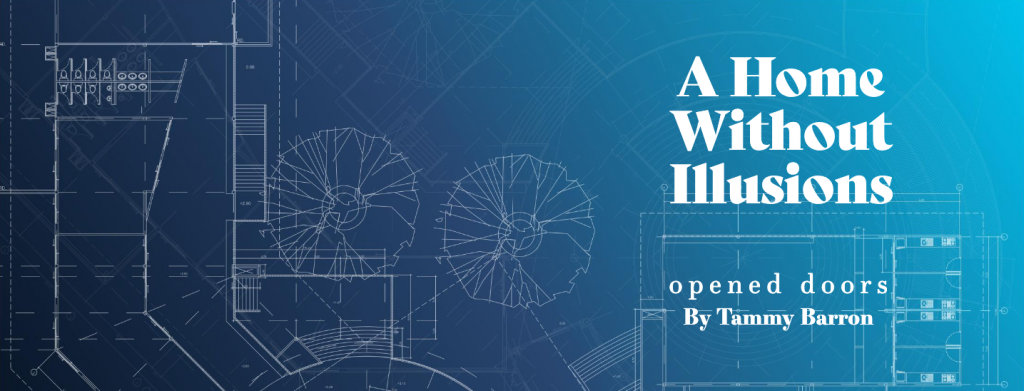
Double-wide, vinyl cottage, trailer, mobile home…doesn’t really matter what you call it. It’s home sweet home to me. For years we dreamed of one day buying a farm and building a custom new home. We saved up for years and finally found a perfect parcel of land, but new construction is expensive, and we had to find more affordable housing to nudge our dream into motion.
The mobile home was always a temporary idea. “Three years max,” we told ourselves. Then “4…5…,” we counted toward the day we would be able to start the build on our dream home, bit by bit becoming more aware of prevalent stigma of living in a trailer. Last year, an article in Commonwealth Magazine described the stereotypical scene mobile-home living conjures for people: “visions of run-down trailer parks with feral cats prowling for food, piles of tires strewn about, and rusted cars on dirt driveways.” The detail of this stereotype was a bit unsettling. Though the article attempted to argue in favor of affordable housing options, the unmistakable bias made the point moot. I can’t speak for the validity of the stigma of trailer living, but I do know it exists. It exists in the comedic jabs from others about our “authentic marble” laminate counter tops, and the “one-of-a-kind reclaimed barn wood” linoleum flooring. Deflecting derision, we ourselves make light of the particle board and glue construction during strong storms, though this humor is always paired with nervous laughter.
For a few years now, my daughter has been old enough to go to sleepovers. Living remotely; out in the country, Emma embraces time spent with friends in “actual neighborhoods” with “actual sidewalks,” she recalls, telling me about how all the children play together on the block. When asked if she would like to have some friends over at our place, she immediately cried “YES!” Then she hesitated.
“What’s wrong?” I ask. Her answer made me feel quite ashamed.
She is hesitant to invite friends over to our farm because of our mobile home. The vocabulary out of her mouth were my words, said tongue-in-cheek many times over the years. The feeling of being less than and fear of not fitting in was taking shape in her self-identity. I had messed up. Our house, though small, is precious. For Emma to think her home isn’t good enough in any facet made my heart hurt. Some friends and family, having heard of her reaction, offered their homes for Emma to host a sleepover. I know these offers came from a most sincere and generous place, but I said “no.” There is a bigger lesson here. I have to fix this.
In a heart-to-heart, we talked about what she loved so much about spending time at her friend’s house. She recalled the games they played, and the friends they met. She described the excitement of new toys and dance parties. “So,” I said flatly “If your best friend didn’t have a fancy house I guess you wouldn’t be friends.” She stared at me so incredulously. I knew she understood the point. Children aren’t instinctively judgmental, they are taught. Society teaches them what to value and what to condemn. We had subtly been sending her the wrong messages of what is worthy.
I consider possessions, their appeal and the fallacy that they validate us somehow. Now don’t get me wrong, I am not about to denounce everything and don a burlap sack; however, I do consider it important to keep materialism in check. Perhaps there is no better time than now, as we have finally broken ground in building our forever home. When meticulously designing the floorplans and finishing schedule, I kept chanting the mantra, “It’s only a house. A house is just a place to keep your stuff.” My most sincere wish is that my identity and values don’t change during and after we build the house we always wanted.
“Join us for the 3rd annual Firework Extravaganza!” This year’s party was a little different, due to social distancing. As I was buzzing around the yard talking to all the guests, I saw this sweet couple sitting at the edge of the party. Smiling and waving madly, I rushed right over to say welcome. We know them from the soccer fields where our children play together. Their boys had already immersed themselves in play with the other children, but the adults seemed a little shy. Within minutes, introductions were made and, of course, small-town connections discovered. Everyone fell into an easy good time. It was an incredible evening.
Speaking several days later, this woman explained that they had hesitated to RSVP because they thought they would be the only Hispanic family at the party. Her hesitation stuck with me. It reminded me of Emma, again, and her sense of not fitting in. It also reminds me of a quote I read not too long ago from Jacque Franco, a self-described social engineer. “Whatever happens in the world is real, what one thinks should happen is projecting. We suffer from our fictitious illusions and expectations of reality.” Had either one of us listened to our fictitious illusions, that night wouldn’t have happened. I wouldn’t have been confident enough to entertain at our mobile home, and she wouldn’t have RSVP’d to join an unfamiliar group. My insecurities fade away and I now embrace the home we’ve created. Above all else, it is welcoming. My reality is a life forged by and filled with good, loving people.
A dream nearly 10 years in the making is taking shape; with the foundation dug out and the blueprints primed. I hope, against all the unavoidable stress to come, we create a space to share and love each other. I want to build a home exactly like my double-wide-vinyl cottage, only with a bit more closet space.











